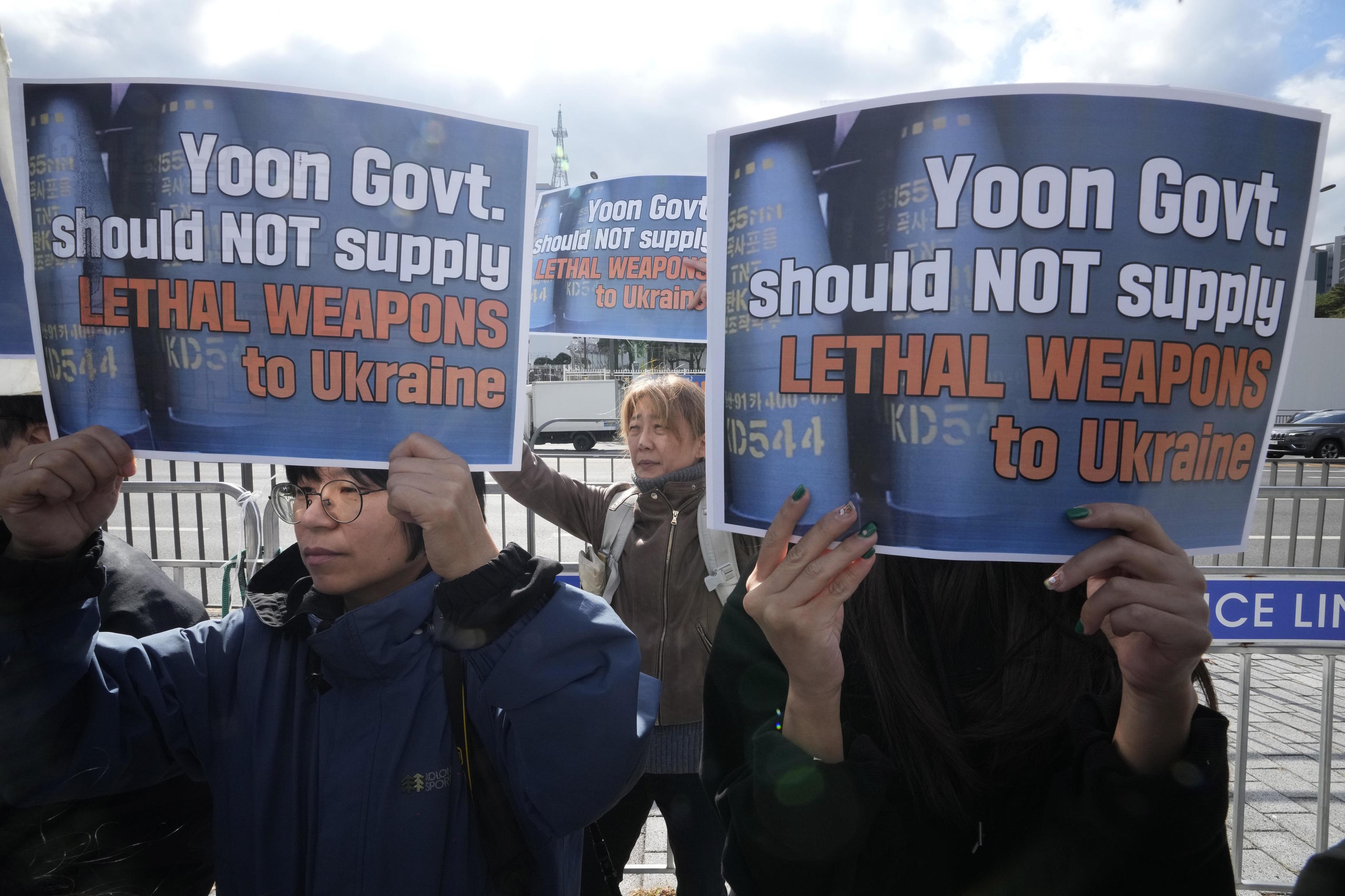Is South Korea, breaking with its traditional pacifist policy of not supplying lethal weapons to a country at war with another, finally going to send arms to Ukraine as evidence mounts that North Korean soldiers are preparing to assist Russia in its war?
This is the question circulating in Seoul these days after the South Korean spy agency stated that neighboring North Korea had sent 1,500 special forces troops to Russia for training in preparation to potentially join combat alongside Russian troops in Ukraine.
It was last June when the South Korean government under conservative Yoon Suk Yeol first seriously warned that it was considering sending weapons to Ukraine in response to the mutual defense pact reached between Moscow and Pyongyang during Russian President Vladimir Putin's visit to the North Korean capital.
"Any cooperation that helps increase North Korea's military power is a violation of the UN Security Council and a threat to our country's security. Therefore, we will reconsider the issue of supplying weapons to Ukraine," stated the Yoon government.
South Korean media monitoring North Korea's every move, fueled by intelligence reports, were the first to warn earlier this month that Kim Jong-un's regime was sending troops to Russia to fight in Putin's war.
Yonhap news agency, after sharing a photo from a pro-Russian Telegram account showing Russian and North Korean flags side by side on a battlefield in Ukraine, stated that Seoul was increasingly convinced of supplying arms to Kiev. Additionally, it was also seriously considering sending military personnel to "monitor the deployed North Korean troops."
"The team will likely consist of military personnel from intelligence divisions to analyze North Korea's battlefield strategies and participate in the interrogation of captured prisoners of war," Yonhap noted, citing an anonymous senior official as the source.
"We would consider supplying weapons for defensive purposes as part of step-by-step scenarios, and if it appears they are going too far, we could also consider offensive use," said another official on Tuesday after South Korea's National Security Council held an emergency meeting to explore responses to the growing military ties between Pyongyang and Moscow.
"North Korea is a criminal group that forces its youth to serve as Russian mercenaries in an unjustifiable war," a statement from the presidential office pointed out, adding that the government will take "gradual countermeasures" linked to the progress of military cooperation between Russia and North Korea. In other words, if it is definitively confirmed that North Korean soldiers are fighting alongside Russian troops, Seoul will respond by sending arms to Kiev.
South Korea, the ninth-largest arms exporter in the world - boasting some of the largest artillery projectile arsenals globally - has supported Ukraine from the start with humanitarian aid and has joined Western sanctions against Moscow. However, it had so far avoided a serious debate on the real possibility of breaking with its traditional pacifist policy. The government feared that if it did so, Putin would respond by providing military support to Pyongyang, with arms and advanced technology that the Kim regime demands for its ballistic missile program.
After South Korean intelligence officials warned that North Korea had already sent 1,500 soldiers to Russia - and was preparing to deploy a total of 12,000 troops from its elite units - NATO requested more information on these reports from Seoul on Monday. A request personally made to President Yoon by the Alliance's Secretary-General, Mark Rutte.
Neither NATO nor the United States have officially confirmed the South Korean reports on the deployment of North Korean troops for the war in Ukraine. Ukrainian President Volodymyr Zelensky also stated a few days ago that Kiev had information that over 10,000 North Korean soldiers were being prepared to join the invading Russian forces.
This week, a Pyongyang representative at the UN denied these claims. "Regarding the so-called military cooperation with Russia, my delegation feels no need to comment on those stereotypical and unfounded rumors," he stated. However, Western countries, after demonstrating how the Kim regime has supplied ammunition and missiles to Moscow, despite Pyongyang denying it on several occasions, have more trust in South Korean intelligence reports.
